Top 10 Countries with the Best Names
The Top Ten
1 United States
 The name "United States" derives from the union of individual states under a federal government. Originally, 13 colonies declared their independence from Britain in 1776 and formed the United States of America. The country is often referred to as the U.S., USA, or America.
The name "United States" derives from the union of individual states under a federal government. Originally, 13 colonies declared their independence from Britain in 1776 and formed the United States of America. The country is often referred to as the U.S., USA, or America.
 The name "United States" derives from the union of individual states under a federal government. Originally, 13 colonies declared their independence from Britain in 1776 and formed the United States of America. The country is often referred to as the U.S., USA, or America.
The name "United States" derives from the union of individual states under a federal government. Originally, 13 colonies declared their independence from Britain in 1776 and formed the United States of America. The country is often referred to as the U.S., USA, or America.
2 United Arab Emirates
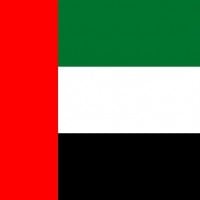 The name "United Arab Emirates" reflects the union of seven emirates on the Arabian Peninsula. Formed on December 2, 1971, the country is often abbreviated as the UAE. The term "Emirates" refers to the territories ruled by an emir, a title of Islamic leaders.
The name "United Arab Emirates" reflects the union of seven emirates on the Arabian Peninsula. Formed on December 2, 1971, the country is often abbreviated as the UAE. The term "Emirates" refers to the territories ruled by an emir, a title of Islamic leaders.
 The name "United Arab Emirates" reflects the union of seven emirates on the Arabian Peninsula. Formed on December 2, 1971, the country is often abbreviated as the UAE. The term "Emirates" refers to the territories ruled by an emir, a title of Islamic leaders.
The name "United Arab Emirates" reflects the union of seven emirates on the Arabian Peninsula. Formed on December 2, 1971, the country is often abbreviated as the UAE. The term "Emirates" refers to the territories ruled by an emir, a title of Islamic leaders.
3 United Kingdom
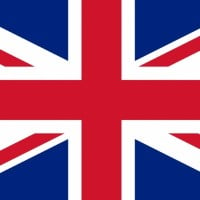 The United Kingdom, or UK, refers to the political entity comprising England, Scotland, Wales, and Northern Ireland. The name signifies the union of these different kingdoms and regions under a single sovereign state.
The United Kingdom, or UK, refers to the political entity comprising England, Scotland, Wales, and Northern Ireland. The name signifies the union of these different kingdoms and regions under a single sovereign state.
 The United Kingdom, or UK, refers to the political entity comprising England, Scotland, Wales, and Northern Ireland. The name signifies the union of these different kingdoms and regions under a single sovereign state.
The United Kingdom, or UK, refers to the political entity comprising England, Scotland, Wales, and Northern Ireland. The name signifies the union of these different kingdoms and regions under a single sovereign state.
4 Republic of the Congo
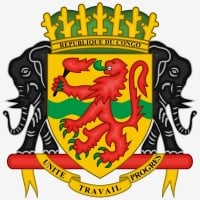 This country should not be confused with its neighbor, the Democratic Republic of the Congo. The name "Republic of the Congo" indicates its status as a republic, and "Congo" comes from the Congo River, which flows through the country.
This country should not be confused with its neighbor, the Democratic Republic of the Congo. The name "Republic of the Congo" indicates its status as a republic, and "Congo" comes from the Congo River, which flows through the country.
 This country should not be confused with its neighbor, the Democratic Republic of the Congo. The name "Republic of the Congo" indicates its status as a republic, and "Congo" comes from the Congo River, which flows through the country.
This country should not be confused with its neighbor, the Democratic Republic of the Congo. The name "Republic of the Congo" indicates its status as a republic, and "Congo" comes from the Congo River, which flows through the country.
5 Canada
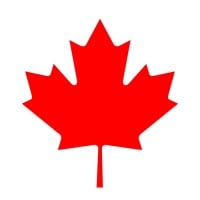 The name "Canada" is believed to have originated from the St. Lawrence Iroquoian word "kanata," meaning "village" or "settlement." French explorers adopted this term to describe the land they encountered in North America.
The name "Canada" is believed to have originated from the St. Lawrence Iroquoian word "kanata," meaning "village" or "settlement." French explorers adopted this term to describe the land they encountered in North America.
 The name "Canada" is believed to have originated from the St. Lawrence Iroquoian word "kanata," meaning "village" or "settlement." French explorers adopted this term to describe the land they encountered in North America.
The name "Canada" is believed to have originated from the St. Lawrence Iroquoian word "kanata," meaning "village" or "settlement." French explorers adopted this term to describe the land they encountered in North America.
6 South Africa
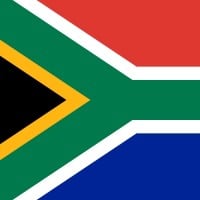 Named for its geographical location at the southern tip of the African continent, South Africa is often abbreviated as SA. The country is a multi-ethnic society with a diverse culture and history.
Named for its geographical location at the southern tip of the African continent, South Africa is often abbreviated as SA. The country is a multi-ethnic society with a diverse culture and history.
 Named for its geographical location at the southern tip of the African continent, South Africa is often abbreviated as SA. The country is a multi-ethnic society with a diverse culture and history.
Named for its geographical location at the southern tip of the African continent, South Africa is often abbreviated as SA. The country is a multi-ethnic society with a diverse culture and history.
7 France
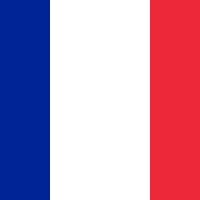 The name "France" is derived from the Latin "Francia," which means "land of the Franks." The Franks were a Germanic tribe that inhabited the region during the Middle Ages.
The name "France" is derived from the Latin "Francia," which means "land of the Franks." The Franks were a Germanic tribe that inhabited the region during the Middle Ages.
 The name "France" is derived from the Latin "Francia," which means "land of the Franks." The Franks were a Germanic tribe that inhabited the region during the Middle Ages.
The name "France" is derived from the Latin "Francia," which means "land of the Franks." The Franks were a Germanic tribe that inhabited the region during the Middle Ages.
8 China
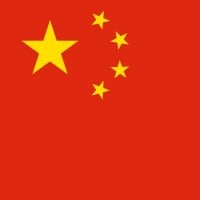 The name "China" is believed to be derived from the Qin Dynasty, pronounced "Chin" in English, which first unified the country in 221 BCE. In Chinese, the country is called "Zhongguo," meaning "Middle Kingdom."
The name "China" is believed to be derived from the Qin Dynasty, pronounced "Chin" in English, which first unified the country in 221 BCE. In Chinese, the country is called "Zhongguo," meaning "Middle Kingdom."
 The name "China" is believed to be derived from the Qin Dynasty, pronounced "Chin" in English, which first unified the country in 221 BCE. In Chinese, the country is called "Zhongguo," meaning "Middle Kingdom."
The name "China" is believed to be derived from the Qin Dynasty, pronounced "Chin" in English, which first unified the country in 221 BCE. In Chinese, the country is called "Zhongguo," meaning "Middle Kingdom."
9 Poland
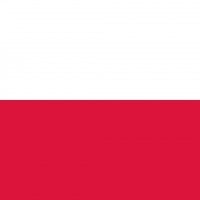 The name "Poland" originates from the tribe of Polans, an early Slavic tribe that inhabited the region. In Polish, the country is called "Polska."
The name "Poland" originates from the tribe of Polans, an early Slavic tribe that inhabited the region. In Polish, the country is called "Polska."
 The name "Poland" originates from the tribe of Polans, an early Slavic tribe that inhabited the region. In Polish, the country is called "Polska."
The name "Poland" originates from the tribe of Polans, an early Slavic tribe that inhabited the region. In Polish, the country is called "Polska."
10 Netherlands
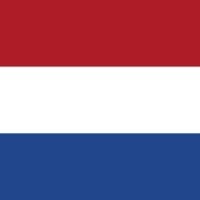 The name "Netherlands" means "lower lands" in Dutch, describing the country's low-lying topography. Much of the nation's land has been reclaimed from the sea.
The name "Netherlands" means "lower lands" in Dutch, describing the country's low-lying topography. Much of the nation's land has been reclaimed from the sea.
 The name "Netherlands" means "lower lands" in Dutch, describing the country's low-lying topography. Much of the nation's land has been reclaimed from the sea.
The name "Netherlands" means "lower lands" in Dutch, describing the country's low-lying topography. Much of the nation's land has been reclaimed from the sea.The Contenders
11 Switzerland
 The name "Switzerland" derives from the canton of Schwyz, one of the founding cantons of the Swiss Confederation. In German, the country is called "Schweiz."
The name "Switzerland" derives from the canton of Schwyz, one of the founding cantons of the Swiss Confederation. In German, the country is called "Schweiz."
 The name "Switzerland" derives from the canton of Schwyz, one of the founding cantons of the Swiss Confederation. In German, the country is called "Schweiz."
The name "Switzerland" derives from the canton of Schwyz, one of the founding cantons of the Swiss Confederation. In German, the country is called "Schweiz."
12 Japan
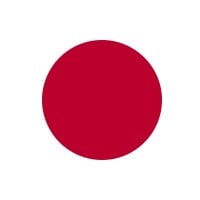 The name "Japan" comes from the Chinese pronunciation of the country's name, which is "Nippon" or "Nihon" in Japanese, meaning "origin of the sun" or "land of the rising sun," referring to Japan's location east of China.
The name "Japan" comes from the Chinese pronunciation of the country's name, which is "Nippon" or "Nihon" in Japanese, meaning "origin of the sun" or "land of the rising sun," referring to Japan's location east of China.
 The name "Japan" comes from the Chinese pronunciation of the country's name, which is "Nippon" or "Nihon" in Japanese, meaning "origin of the sun" or "land of the rising sun," referring to Japan's location east of China.
The name "Japan" comes from the Chinese pronunciation of the country's name, which is "Nippon" or "Nihon" in Japanese, meaning "origin of the sun" or "land of the rising sun," referring to Japan's location east of China.
13 South Korea
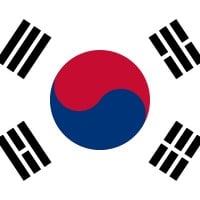 Known officially as the Republic of Korea, the name "South Korea" is used to distinguish it from North Korea. The word "Korea" comes from the name "Goryeo," a dynasty that ruled the Korean Peninsula in the Middle Ages.
Known officially as the Republic of Korea, the name "South Korea" is used to distinguish it from North Korea. The word "Korea" comes from the name "Goryeo," a dynasty that ruled the Korean Peninsula in the Middle Ages.
 Known officially as the Republic of Korea, the name "South Korea" is used to distinguish it from North Korea. The word "Korea" comes from the name "Goryeo," a dynasty that ruled the Korean Peninsula in the Middle Ages.
Known officially as the Republic of Korea, the name "South Korea" is used to distinguish it from North Korea. The word "Korea" comes from the name "Goryeo," a dynasty that ruled the Korean Peninsula in the Middle Ages.
14 Russia
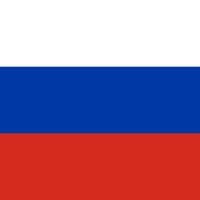 The name "Russia" comes from Rus', a medieval state populated primarily by the East Slavs. The name Rus' itself likely derives from an Old Norse term for "the men who row."
The name "Russia" comes from Rus', a medieval state populated primarily by the East Slavs. The name Rus' itself likely derives from an Old Norse term for "the men who row."
 The name "Russia" comes from Rus', a medieval state populated primarily by the East Slavs. The name Rus' itself likely derives from an Old Norse term for "the men who row."
The name "Russia" comes from Rus', a medieval state populated primarily by the East Slavs. The name Rus' itself likely derives from an Old Norse term for "the men who row."
15 Djibouti
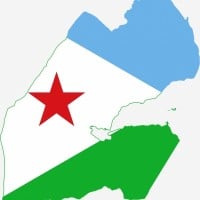 The name "Djibouti" is believed to come from the Afar word "gabouti," meaning "plateau," which describes much of the country's topography.
The name "Djibouti" is believed to come from the Afar word "gabouti," meaning "plateau," which describes much of the country's topography.
 The name "Djibouti" is believed to come from the Afar word "gabouti," meaning "plateau," which describes much of the country's topography.
The name "Djibouti" is believed to come from the Afar word "gabouti," meaning "plateau," which describes much of the country's topography.
16 Chad
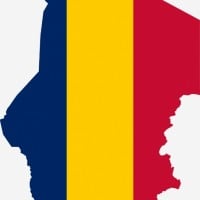 The country's name is derived from Lake Chad, one of the largest freshwater lakes in Africa. The name "Chad" is believed to come from the local Kanuri word "Tsade," meaning "lake."
The country's name is derived from Lake Chad, one of the largest freshwater lakes in Africa. The name "Chad" is believed to come from the local Kanuri word "Tsade," meaning "lake."
 The country's name is derived from Lake Chad, one of the largest freshwater lakes in Africa. The name "Chad" is believed to come from the local Kanuri word "Tsade," meaning "lake."
The country's name is derived from Lake Chad, one of the largest freshwater lakes in Africa. The name "Chad" is believed to come from the local Kanuri word "Tsade," meaning "lake."
17 Gabon
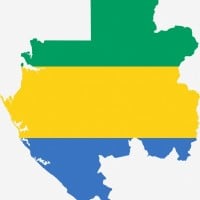 The name "Gabon" comes from the Portuguese word "gabão," meaning "cloak," which is a reference to the shape of the Komo River estuary that resembles a cloak.
The name "Gabon" comes from the Portuguese word "gabão," meaning "cloak," which is a reference to the shape of the Komo River estuary that resembles a cloak.
 The name "Gabon" comes from the Portuguese word "gabão," meaning "cloak," which is a reference to the shape of the Komo River estuary that resembles a cloak.
The name "Gabon" comes from the Portuguese word "gabão," meaning "cloak," which is a reference to the shape of the Komo River estuary that resembles a cloak.
18 Gambia
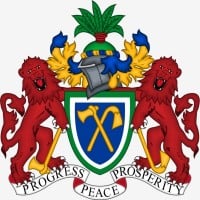 Named after the Gambia River, which flows through the country, the name "Gambia" is believed to have originated from the Portuguese word "câmbio," meaning "trade," reflecting its historical importance in trade routes.
Named after the Gambia River, which flows through the country, the name "Gambia" is believed to have originated from the Portuguese word "câmbio," meaning "trade," reflecting its historical importance in trade routes.
 Named after the Gambia River, which flows through the country, the name "Gambia" is believed to have originated from the Portuguese word "câmbio," meaning "trade," reflecting its historical importance in trade routes.
Named after the Gambia River, which flows through the country, the name "Gambia" is believed to have originated from the Portuguese word "câmbio," meaning "trade," reflecting its historical importance in trade routes.
19 Norway
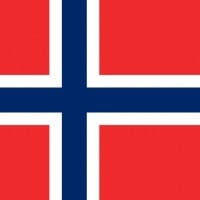 The name "Norway" comes from the Old English word "Norþweg," meaning "northern way." In Norwegian, the country is called "Norge," derived from the Old Norse "Noregr."
The name "Norway" comes from the Old English word "Norþweg," meaning "northern way." In Norwegian, the country is called "Norge," derived from the Old Norse "Noregr."
 The name "Norway" comes from the Old English word "Norþweg," meaning "northern way." In Norwegian, the country is called "Norge," derived from the Old Norse "Noregr."
The name "Norway" comes from the Old English word "Norþweg," meaning "northern way." In Norwegian, the country is called "Norge," derived from the Old Norse "Noregr."
20 Denmark
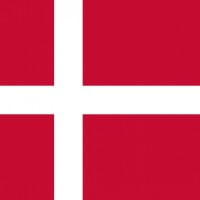 The name "Denmark" is believed to be derived from the Old Norse "Danmǫrk," meaning "borderland of the Danes." The Danes were an early Scandinavian tribe that inhabited the area.
The name "Denmark" is believed to be derived from the Old Norse "Danmǫrk," meaning "borderland of the Danes." The Danes were an early Scandinavian tribe that inhabited the area.
 The name "Denmark" is believed to be derived from the Old Norse "Danmǫrk," meaning "borderland of the Danes." The Danes were an early Scandinavian tribe that inhabited the area.
The name "Denmark" is believed to be derived from the Old Norse "Danmǫrk," meaning "borderland of the Danes." The Danes were an early Scandinavian tribe that inhabited the area.
21 Iceland
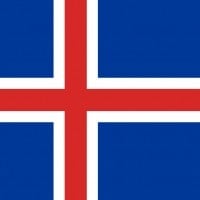 Known as "Ísland" in Icelandic, the name "Iceland" is descriptive of the country's icy landscapes. However, it's a bit of a misnomer as the country has a moderate climate due to the Gulf Stream.
Known as "Ísland" in Icelandic, the name "Iceland" is descriptive of the country's icy landscapes. However, it's a bit of a misnomer as the country has a moderate climate due to the Gulf Stream.
 Known as "Ísland" in Icelandic, the name "Iceland" is descriptive of the country's icy landscapes. However, it's a bit of a misnomer as the country has a moderate climate due to the Gulf Stream.
Known as "Ísland" in Icelandic, the name "Iceland" is descriptive of the country's icy landscapes. However, it's a bit of a misnomer as the country has a moderate climate due to the Gulf Stream.
22 Finland
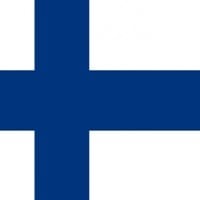 The name "Finland" is believed to come from the Old Norse "Finnr," a term used to describe the Finnic people who inhabit the region. In Finnish, the country is called "Suomi."
The name "Finland" is believed to come from the Old Norse "Finnr," a term used to describe the Finnic people who inhabit the region. In Finnish, the country is called "Suomi."
 The name "Finland" is believed to come from the Old Norse "Finnr," a term used to describe the Finnic people who inhabit the region. In Finnish, the country is called "Suomi."
The name "Finland" is believed to come from the Old Norse "Finnr," a term used to describe the Finnic people who inhabit the region. In Finnish, the country is called "Suomi."
23 Ukraine
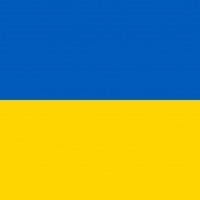 The name "Ukraine" is believed to come from the Slavic word "ukraina," which means "borderland" or "outskirts," reflecting its historical position on the border of various empires.
The name "Ukraine" is believed to come from the Slavic word "ukraina," which means "borderland" or "outskirts," reflecting its historical position on the border of various empires.
 The name "Ukraine" is believed to come from the Slavic word "ukraina," which means "borderland" or "outskirts," reflecting its historical position on the border of various empires.
The name "Ukraine" is believed to come from the Slavic word "ukraina," which means "borderland" or "outskirts," reflecting its historical position on the border of various empires.
24 Moldova
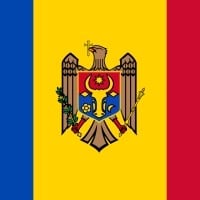 Named after the Moldova River, the name "Moldova" is believed to be derived from the Gothic "molda," meaning "dust," although this is not definitively confirmed.
Named after the Moldova River, the name "Moldova" is believed to be derived from the Gothic "molda," meaning "dust," although this is not definitively confirmed.
 Named after the Moldova River, the name "Moldova" is believed to be derived from the Gothic "molda," meaning "dust," although this is not definitively confirmed.
Named after the Moldova River, the name "Moldova" is believed to be derived from the Gothic "molda," meaning "dust," although this is not definitively confirmed.BAdd New Item